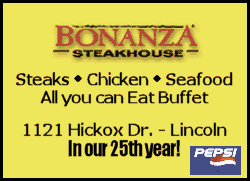 Chester Carlson's working career began early in life, becoming his
family's main provider before he started high school. A few years
later, Chester was working as a patent clerk for Bell Labs in New
York when inspiration struck. Chester Carlson's working career began early in life, becoming his
family's main provider before he started high school. A few years
later, Chester was working as a patent clerk for Bell Labs in New
York when inspiration struck.
Tired of having to manually retype patent descriptions and redraw
patent drawings whenever copies were needed, he set out to devise a
method of making photocopies. Chester patented his method in 1937.
It took 22 years for him to become an overnight success after
teaming up with a small paper manufacturing company named Haloid.
The product became known as the Model 914, and Haloid soon changed
its name to Xerox.
Where would some of America's largest office products companies
like Staples and Kinko's be without Chester Carlson's invention?
They would be nonexistent.
Despite all of Chester's success, he was rejected at first.

IBM, Kodak, General Electric and nearly 20 other companies
rejected his idea.
The precursor to Monopoly was a 1904 game called "The Landlord's
Game," which taught people the unfairness of realty and tax systems.
Soon people were customizing the game to reflect their own
neighborhoods. After Charles Darrow of Germantown, Pa., played one
of these games at a friend's house, he changed the game to what
became Monopoly and began manufacturing the games himself and
selling them for $4 each
Despite all of Charles' success, he was rejected at first.
Parker Brothers rejected it in a big way, citing 52 fundamental
flaws. So Charles did what any determined inventor would do -- he
continued selling the game himself. When Parker Brothers saw the
success Charles was having during the Christmas season of 1934, they
agreed to buy the rights from him.
North Carolina native Caleb Bradham created Pepsi in 1893,
although it wasn't originally called Pepsi. He named it after
himself and called it "Brad's Drink." Caleb Bradham poured a sample
of his mixture into a beaker and gave it to his assistant to taste
it. When he saw his assistant's face light up upon tasting it, Caleb
knew he had created a winner.
[to top of second column]
 |
 He later renamed it Pepsi Cola after its two main ingredients,
pepsin and the cola nut. Pepsi Cola was successful until sugar
prices went bad in 1923. Eight years later, the Loft Candy Company
purchased a bankrupt Pepsi Cola Company.
Despite all of Pepsi's early success, it was rejected at first.
When the Loft Candy Company struggled with Pepsi just like its
founder did, they offered to sell it to Coca-Cola. Unfortunately for
Coca-Cola, they rejected it without even making a bid.
So the common theme here is…?
That's right; each invention was rejected before the world
figured out what a great invention it was.
You can't really blame the companies that rejected them, though.
Chester Carlson's Xerox technology, with terms like "electrostatics"
and "photoconductivity," was so new and so different from anything
that had ever been created that no one else understood it.
Monopoly made Charles Darrow the world's first millionaire board
game inventor, even though he wasn't the person who designed the
original version of the game.

Pepsi, on the other hand, was just one of many cola companies of
that era, and its early bankruptcy made it less than an ideal
prospect.
From the Department of Useless Trivia, Pepsi spawned the first
advertising jingle in history. Called "Nickel Nickel" because that
was the price of a bottle of Pepsi, the jingle also became a hit
record.
And who was it who made the quote at the beginning of this column
-- something about there being "a world market for maybe five
computers"?
Former IBM chairman Thomas Watson, in 1943. And despite all of
his success, his comment was rejected at first.
[Text from file received
from Paul Niemann]
Paul Niemann may be reached at
niemann7@aol.com.
Copyright Paul Niemann 2007
(Other
columns) |